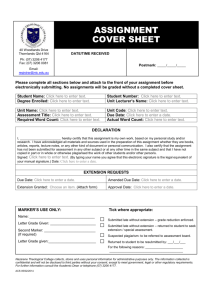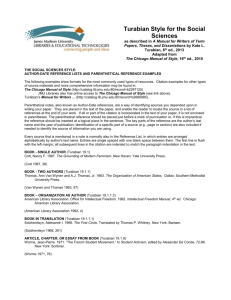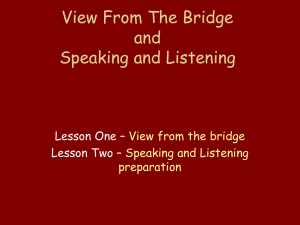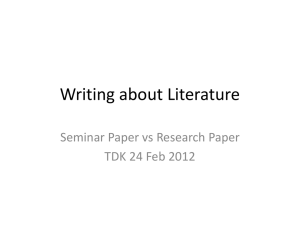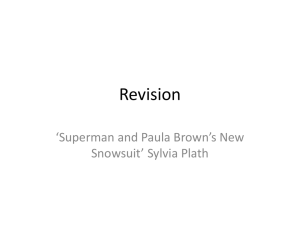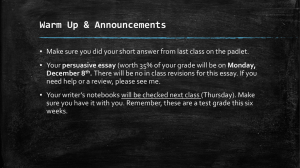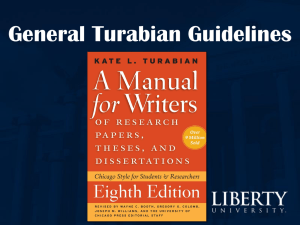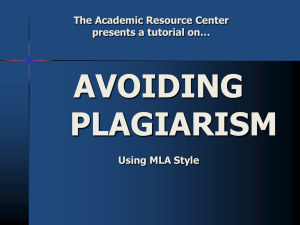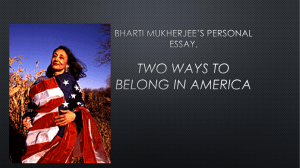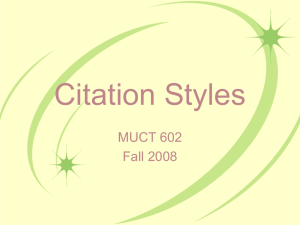how-to-write-a-research
advertisement
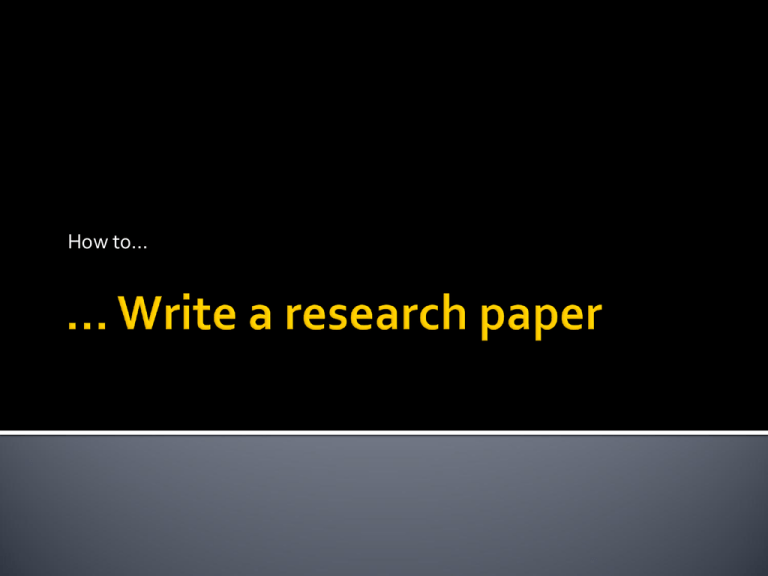
How to… So many students are over-run with fear and anxiety at the prospect of having to write a research paper. But the truth is, provided you know how to approach the assignment, writing research papers is not difficult at all. In fact, if you are writing about something that interests you, you will find the assignment to be a great deal of fun. Here is how to do it: To make things easy for this and all future research assignments, develop a template on your computer, formatting it according to Turabian standards. Then, use the "save as" function to save the template for your first research assignment. What’s a template? A template is nothing more than an MS Word document that you set up to use for your research papers. Turabian shows you how to format your papers (see page 378) . Each time you have to write another paper, just go back to your template and save it with a new title. E-Turabian generator Book mark this link on your laptop computer: http://www.eturabian.com/tura bian/index.html It is alright to consult with your instructor about this. focus on a specific part of the topic you have chosen. It's alright to consult with your instructor about this, too. A bibliography is a list of books and other information sources that you use to write your paper. So the bibliography is essentially the foundation of the paper; and just like the foundation for a house, the house is no better than the foundation it sits on. Librarians can help you develop your bibliography. In building your bibliography it is a good idea to the find a variety of sources, such as: Books e-Books Articles from peer-reviewed journals, and maybe some information from online sources. Also, when you compile your bibliography, it has to be formatted according to Turabian standards. Once you've become accustomed working with Turabian this part will come easily to you. Each of you should have your own copy of Turabian. Since you are a seminarian, it's pretty likely that you will often make references to biblical scriptures. Note that according to Turabian, you do not need to include the Bible or any books of the Bible in your bibliography; but you will need to know how to make footnote references to scriptures. (see Turabian 19.5.2) To do this, include the abbreviated name of the book, the chapter and verse—but never a page number. See Turabian section 24.6 for a list of biblical abbreviations. Chapter and verse numbers should be in Arabic form and separated by a colon. For example: Jn 3:16. Research that culminates into a written report begins with either a thesis statement or a thesis question. Professor Currin specifies that you use a thesis statement. “There is a large body of scientific and sociological data that indicates that a worldwide flood occurred during the time of Noah and this paper presents this evidence.” Once you acquired the sources you need for your paper, start reading. When you read the books you have selected, you can usually use the index to find information that specifically addresses the point of your research. That will save you the trouble of having to read the whole book. One of the "trick of the trade" that experienced researchers use is they make a photocopy of the pages that contain information that specifically addresses the thesis statement, and then use a yellow highlighter to mark those statements. Or, when you read articles, either make photocopies of them out of the journals, or print them out from their online sources, and then use a yellow highlighter whenever you find statements that focus on the specific point of your research. (Some of your quotes might be a whole paragraph long.) When you make these photocopies, it is a really good idea to also make a photocopy of the title page of the book or article and staple those pages together. This will make it more convenient when you cite the bibliographic information. These sections that you are highlighting will ultimately become the quotations you use in your paper. Go back to each of part of your sources that you highlighted in yellow. Start typing on your template the information you've highlighted. Be sure to enclose each of these quotations in "quotations marks" (unless the quote is five or more lines long). For long quotations, format them as block quotes without quotation marks (see Turabian 7.5). These days, nearly all modern word processing software programs are equipped with a program to format your footnotes for you, so this takes a lot of the drudgery out of your work. In MS Word, this is found under: References / AB1 Insert Footnote. Next to that is something called Next Footnote. These features will make it a lot easier to type up the quotes in your papers. At this point, what you have on your template is a collection of quotations from your sources. It is important to have at least one quote from each source (never include any source in your bibliography if you did not actually use it in your paper). It is even better to take a few quotations from each of your sources. Plagiarism is when you copy words from another author, without acknowledging the source in your paper. Plagiarism is a form of theft. The faculty here at New Life take the issue of plagiarism VERY seriously. Students have been kicked out of here for plagiarizing. Just be sure to put all of the things you quote in quotation marks (unless it is a block quote) and ALWAYS cite the source (and learn how to do this correctly, per the Turabian style manual). If you are an undergraduate, think in terms of providing one or two quotations per page (i.e.: number of quotations = number of pages x 1.5). If you are a graduate student, make a point of including about 2 or 3 quotations per page (number of quotations = number of pages x 2.5). You may need to cutand-paste your quotations in order to put them in an order that makes sense to the reader. Fortunately, with modern computer word-processing technology, this is easy enough to do. Believe it or not, you’ve already completed the hardest part of writing your paper. All you have left to do is write a commentary or analysis of what the quotations are telling you. Just read over the quotes, think about what they are saying, and write your paper around the quotations. Oh yes, research papers are supposed to have a conclusion at the end, so see if you can write a paragraph that wraps up the whole thing in a concise summary of your thesis statement. Now that you know how to use Turabian, you no longer need to ask the librarian any more questions about it or how to use it… Right? RIGHT! Now if you think you are a real research hot-shot and desperately want to go the extra mile (and get a better grade), you should provide some analysis and commentary in your paper about the authors who wrote the books and articles you've used. If you are researching the great flood from a scientific standpoint, understand that a geologist will look at it (and write about it) from one angle, while a meteorologist will look at it from another, and a cultural anthropologist will have another viewpoint, as will an archeologist. Also, every writer has his or her own background, which will develop a bias that will become evident in that researcher’s writing. Experts in the field will recognize these biases in the author’s writing. Stop to consider the educational background of the authors whose books and articles you are reading. If you are a graduate student, this kind of indepth analysis is standard. You will have to use the SBL Handbook of Style rather than Turabian. If you have experience using Turabian, you will find the transition to SBL fairly easy, as they are pretty similar. Remember when I taught you about research and librarianship and I taught you about the “corpus of knowledge” and how it grows over time? Hopefully, you will earn a PhD and get your research published and thereby make your own contribution to the everincreasing body of knowledge. If you take a moment to set up a word processing template on your computer, and use it each time you write a paper, you will glide through your academic career all the way to graduation!! It took me YEARS to learn what I just taught you. If I had known how to take this approach in research and writing when I was an undergraduate, it would have made my life MUCH easier!
